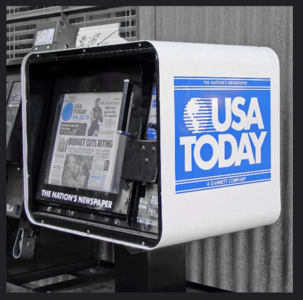S
smitcompton
Guest
Hi,
I am going to weigh-in on this conversation. Dr.s themselves created the group practice, which sounded sensible at the time. This was done for financial reasons and convenience for patients., who would be able to walk down the hall to see another Dr for related or unrelated ailments. Some group practices grew into factories and hospitals began to look at group practices as both profit centers and convenience for their hospital patients.
One of my doctors( a neurologist, was thrilled Rush-Pres St Lukes in Chicago bought their group practice. He is a man in his mid-forties and told me he was relieved. They would have none of the administrative responsibilities. He did speak about DR.s earnings. As he said, Dr.s today don't want to make $400,000, but want a million. This might have been 20 yrs ago, when the real big beef was insurance companies asking for pre=approvals.
My last two hospitalizations I noticed Drs were spending more time with me. Sometimes I had trouble keeping the conversation going. I thought, I'm dying. About 5 different Dr.s. It was only when I read the billing for medicare that I realized that medicare was paying the Dr.s for 35 and 25resp. minutes for their visit. This hospital was taken over by Northwestern, an excellent hospital. These Dr.s were spending time with their patients. I was floored. I have had 10 minute office visits with another group practice and I stopped going to them when I heard the young women complained of the 10 minute hour. I never look at that practice the same way.
My present GP never rushes me, and he always, always reads my chart before he walks in the room. He has the information in his head. I am so impressed with him. Its a very large regional group practice he belongs to. They e=mailed teir patients over 65 to come get the shot. They set up 2 or 3 different locations to go to.
I don't want you to think its all glowing, I have had a few bad ones, one terrible one in England, and a few here. Truthfully I'd rather be here for medical care.
Whats broken is the high cost. And, my opinion, is that Drs want to be paid more. They definitely want the million or more. Dr.s don't think they should be told by anyone what to do--insurance companies or takeovers..
Dr.s complain too much. And we have lost the personal in medicine. As a child our Drs knew us, our parents, and if you met them on the street, they would know. who you are. Very little real human contact. We are just numbers to the Dr.
They would get more satisfaction if that could change.
Annette
I am going to weigh-in on this conversation. Dr.s themselves created the group practice, which sounded sensible at the time. This was done for financial reasons and convenience for patients., who would be able to walk down the hall to see another Dr for related or unrelated ailments. Some group practices grew into factories and hospitals began to look at group practices as both profit centers and convenience for their hospital patients.
One of my doctors( a neurologist, was thrilled Rush-Pres St Lukes in Chicago bought their group practice. He is a man in his mid-forties and told me he was relieved. They would have none of the administrative responsibilities. He did speak about DR.s earnings. As he said, Dr.s today don't want to make $400,000, but want a million. This might have been 20 yrs ago, when the real big beef was insurance companies asking for pre=approvals.
My last two hospitalizations I noticed Drs were spending more time with me. Sometimes I had trouble keeping the conversation going. I thought, I'm dying. About 5 different Dr.s. It was only when I read the billing for medicare that I realized that medicare was paying the Dr.s for 35 and 25resp. minutes for their visit. This hospital was taken over by Northwestern, an excellent hospital. These Dr.s were spending time with their patients. I was floored. I have had 10 minute office visits with another group practice and I stopped going to them when I heard the young women complained of the 10 minute hour. I never look at that practice the same way.
My present GP never rushes me, and he always, always reads my chart before he walks in the room. He has the information in his head. I am so impressed with him. Its a very large regional group practice he belongs to. They e=mailed teir patients over 65 to come get the shot. They set up 2 or 3 different locations to go to.
I don't want you to think its all glowing, I have had a few bad ones, one terrible one in England, and a few here. Truthfully I'd rather be here for medical care.
Whats broken is the high cost. And, my opinion, is that Drs want to be paid more. They definitely want the million or more. Dr.s don't think they should be told by anyone what to do--insurance companies or takeovers..
Dr.s complain too much. And we have lost the personal in medicine. As a child our Drs knew us, our parents, and if you met them on the street, they would know. who you are. Very little real human contact. We are just numbers to the Dr.
They would get more satisfaction if that could change.
Annette








300x240.png)